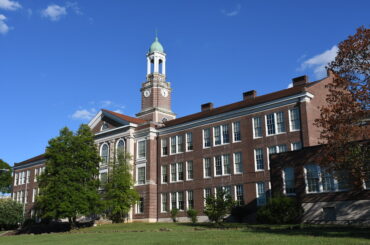The construction of a spacious park around downtown on Cumberland riverbanks is in the works. While some people view the Wharf Park plan as a reason for joy, others have concerns over it. Parks and recreation proponents, particularly those who are affiliated with the city’s rowing scene, feel enthusiastic regarding the plan for the location. The site is under Rolling Mill Hill as well as could house a multi-purpose recreation facility alongside other amenities.
Nevertheless, homelessness champions and people who occupy the undeveloped location fear whether unhoused residents would be expelled from yet another US property. For your information, such individuals were forced to leave many other US areas in the recent past.
Kayla Phillips, who participated in a recent public event in Nashville about the real estate project, lived there with around 200 other individuals for approximately four months. The expulsion would make the people, who struggle to survive there, not just lose hope but also start over. Kayla rhetorically said where would people go next if expelled.
Tim Netsch of Metro Nashville Parks Department said that his agency knows that numerous people live on that site. Therefore, the Department is doing ongoing discussions with service providers, including Nashville’s Metro Homeless Impact Division, to address this issue. With the new Nashville park’s completion likely to take two years at the least, Netsch stated that there is yet no solution regarding accommodating the residents.
The anticipated two-year duration is likely optimistic. When designers are collecting community opinion and determining which things should go at the location, there is still no dedicated financing for its construction. Netsch stated that Nashville would finalize the purchase of the last part of the local property in a month or so.
He also stated that the site has a lot of potential as well as a unique character for a downtown Nashville location. There are a forest area and stunning bluffs along the river, plus the property presents unique opportunities for a great park space near downtown.
Some of the potential issues that face park planners are flooding, steep terrain, industrial contamination, as well as, connections to adjacent neighborhoods and non-Nashville parks and greenways.
Besides a potential recreational facility to accommodate things such as a new rowing program, the park could house tennis courts, basketball courts, playgrounds and other facilities. As for Netsch, it is an area that lacks some of the features mentioned above.
Rowers in Nashville have been looking for a Cumberland River facility for the last many years. The Nashville Rowing Club’s equipment is stored at the Nashville Metro Park Service-run Hamilton Creek Sailboat Marina.
As for The Nashville Rowing Club’s Hendry Trost, a dedicated Wharf Park facility would let the club open up its Juniors Programs to Metro Schools kids who require public transportation. For your information, Hamilton Creek lacks public transportation. The junior programs of the club largely comprise students from Williamson County and private schools.
Trost stated that the club cannot get public schools of Nashville involved, and that a new downtown location would allow accessing the city’s whole public schools. According to Trost, the club could provide rowing to Metropolitan Nashville Public Schools in the form of an athletic endeavor. Trost stated that the above-mentioned move would make the school district accessible to a bigger group of students.
On the other hand, the funding concerns caused Nashville Metro Council’s member Freddie O’Connell to be pessimistic about the park project competition. To be more precise, the concerns made O’Connell wonder whether it would be finished before his term in the Council ends two years later.
O’Connell echoed concerns over individuals who live on that site as well as highlighted the imminent start of supportive housing’s construction for unhoused people. Nevertheless, the construction project has encountered delays as well as would not provide enough beds for the number of individuals reportedly occupying the property.
While O’Connell will keep advocating for housing, he does not feel that the public property is untouchable just because it has some residents. O’Connell stated that affordable housing seldom becomes affordable to individuals who are not housed while expressing his eagerness about the next measure here. O’Connell described it as an interesting parcel of land that is unlike what almost every other part of Nashville has.



